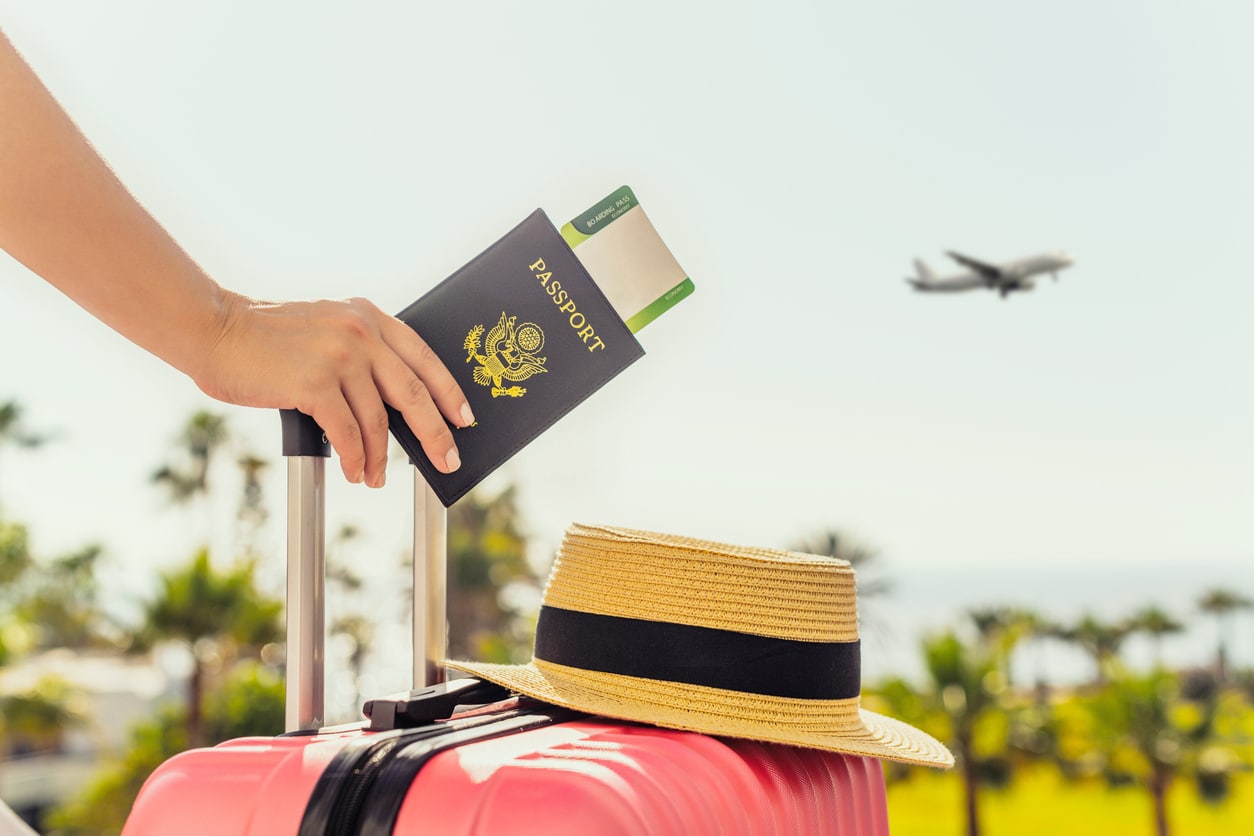Moving to Portugal from the USA: Your Tax-Smart Relocation Plan for 2025

Over 34,000 Americans have already made Portugal their home, drawn by Europe’s lowest cost of living and a tax situation that often eliminates US tax liability entirely. Portugal offers the lowest cost of living in Western Europe, where a couple can live comfortably on $2,500 to $3,000 monthly outside major cities – about 45% less than comparable US living costs.
Here’s the relief you need to hear: Most Americans moving to Portugal will owe little to no US taxes thanks to powerful expat tax protections. The Foreign Earned Income Exclusion lets you exclude up to $130,000 in foreign-earned income from US taxation for 2025, and the Foreign Tax Credit can eliminate any remaining US tax liability by using Portuguese taxes you pay to offset your US bill dollar-for-dollar.
The process is straightforward when you know the right steps. Portugal offers several visa pathways designed specifically for Americans, with reasonable financial requirements that middle-class retirees and remote workers can easily meet. Plus, after five years of residency, you can apply for EU citizenship, giving you the right to live and work anywhere in the European Union.
Can US Citizens Move to Portugal?
Absolutely, but you’ll need the right visa and proper preparation. Portugal actively welcomes Americans through several well-established immigration pathways.
The D7 “Passive Income” Visa (Most Popular for Americans)
The D7 visa is perfect for retirees, remote workers, and anyone with passive income. Requirements are refreshingly reasonable:
- Monthly income requirement: €870 ($902) for individuals, €1,305 ($1,353) for couples
- Income sources that qualify: Social Security, pensions, rental income, dividends, and remote work income
- Housing requirement: Must rent or buy accommodation in Portugal
- Residency commitment: Live in Portugal for at least 16 months during the first 2 years
- Work permissions: You’re allowed to work in Portugal if desired
- Path to citizenship: Apply for permanent residency after 5 years
Other Visa Options for Different Situations
- Digital Nomad Visa: Requires proof of minimum monthly income of €3,480 (four times Portugal’s minimum wage) from companies outside Portugal.
- Golden Visa: Minimum investment of €250,000 in qualifying projects with minimal residency requirements (7 days per year).
- Entrepreneur Visa (D2): For business owners with a solid business plan and proof of investment.

Are You Ready to Move Abroad?
Choose the answer to each question that best describes you or your current situation, and learn how ready you are to start a life abroad.
Are You Ready to Move Abroad?
"*" indicates required fields

You have an adventurous spirit but you may need to prepare a bit more to ensure a smooth transition abroad. Consider researching more about the cultural, legal, and financial aspects of living overseas. Check out our guide 25 Thing Every Expat Should Know
You’re on the right track. You’ve started to think about what life abroad will entail. Keep building on your preparations to avoid any surprises once you’ve moved. Check out our guide 25 Thing Every Expat Should Know
You’re ready to move abroad! You seem well-prepared and have done your homework! You’re ready to embrace the expat life with confidence. Check out our guide 25 Thing Every Expat Should Know
What Does Moving to Portugal Cost?
The financial requirements are designed to be accessible for middle-class Americans, not just the wealthy.
Upfront Investment Needed
Visa and Setup Costs:
- Visa application fees: €90-€180 ($93-$187)
- Document authentication and translations: €200-€500 ($208-$519)
- Initial accommodation deposits: 2-3 months’ rent
- Health insurance: €20-€50 ($22-$55) monthly
Required Savings: Portuguese bank statements showing a minimum balance of €10,440 ($10,827) for one year. This increases by 50% for a spouse (€5,220/$5,414) and 30% for each child (€3,132/$3,248).
Living Costs That Will Surprise You
Housing Savings:
- Small towns: Furnished rentals starting at $450 monthly
- Lisbon city center: One-bedroom apartments around €1,333 ($1,430) vs €2,392 ($2,565) in Washington, DC
- Property purchases: Houses under $200,000 available in interior regions
Daily Life Expenses:
- Healthcare: Private insurance €20-€50 ($22-$55) monthly
- Groceries: Around €300 ($311) monthly for quality food
- Transportation: Monthly public transport passes €35-€55 ($36-$57)
- Utilities: Small apartments average €100 ($104) monthly
Can You Live in Portugal on $1,000 per Month?
Yes, in smaller Portuguese towns, this is absolutely possible, especially with smart planning.
Monthly Budget Breakdown for Rural Areas
- Rent: $450-$600
- Food: $200-$300
- Utilities: $100-$150
- Transportation: $50-$100
- Miscellaneous: $100-$150
- Total: $900-$1,300
Realistic Budgets for Different Lifestyles
- Comfortable Living in Major Cities: €1,773 ($1,840) monthly covers all expenses including rent for a single person in areas near but outside Lisbon or Porto.
- Couple Living Well: $2,500-$3,000 monthly provides a high quality of life outside major cities, including dining out, entertainment, and occasional travel.
Why Portugal Makes Financial Sense for US Taxes
This is where Portugal becomes even more attractive. The combination of low living costs and favorable US tax treatment creates an ideal situation for American expats.
US Tax Protections That Apply in Portugal
- Foreign Earned Income Exclusion (FEIE): For 2025, you can exclude up to $130,000 of foreign-earned income from US taxation. Married couples who both qualify can exclude up to $260,000.
- Foreign Tax Credit (FTC): Use Portuguese taxes paid to offset US tax liability dollar-for-dollar. Since Portugal’s tax rates are generally higher than US rates, this often eliminates your entire US tax bill.
Example: Retired Couple’s Tax Situation:
- Combined Social Security: $3,600/month
- Pension income: $2,000/month
- Total: $5,600/month ($67,200 annually)
- US tax liability: Often $0 after exclusions and credits
- Easily meets D7 visa income requirements
Portuguese Tax Benefits for Americans
Non-Habitual Resident (NHR) Program: While the NHR program for pension income was updated in 2024, Portugal still offers favorable tax treatment for various types of income, making it highly tax-efficient for American retirees.
You must continue filing US tax returns annually, but this doesn’t mean you’ll owe taxes. Professional guidance ensures you claim every available benefit while staying completely compliant.
Is Moving to Portugal a Good Idea for Americans?
Portugal consistently ranks as one of the world’s best expat destinations, and the numbers prove why Americans are choosing it.
Quality of Life Benefits
- World-Class Healthcare: The World Health Organization ranks Portugal’s healthcare at #12 globally. Private health insurance costs a fraction of US rates and provides excellent coverage.
- Safety and Security: Portugal consistently ranks as one of the safest countries worldwide, offering an increasingly valuable peace of mind.
- Climate and Culture: Year-round mild weather, rich cultural experiences, and a relaxed pace of life that prioritizes work-life balance.
- English-Friendly Environment: English is widely spoken in urban areas and business settings, making the transition easier for Americans.
The Expat Community Advantage
Portugal already hosts a vibrant American expat community with established support networks, social groups, and resources to help newcomers integrate successfully.
Stop guessing. Download the expert guide now.
"*" indicates required fields

How to Make Your Move: Step-by-Step Process
Phase 1: Planning and Preparation (6-12 months before)
Choose Your Visa Type:
Most Americans choose the D7 visa for its reasonable requirements and flexibility.
Financial Preparation:
- Gather 12+ months of income documentation
- Consider opening a Portuguese bank account remotely
- Research your preferred regions and accommodation options
Document Collection:
- FBI background check (apostilled)
- Birth and marriage certificates (apostilled)
- Health insurance coverage for Portugal
- Proof of income documentation
Phase 2: Visa Application and Approval (2-4 months)
- Submit Your Application: Apply at the Portuguese consulate in your US jurisdiction. Processing typically takes 60-90 days.
- Secure Accommodation: You’ll need a 12-month lease agreement or property purchase documentation.
- Plan Your Tax Strategy: This is the perfect time to consult with expat tax professionals about optimizing your US tax situation from day one.
Phase 3: Arrival and Integration (First 6 months)
Apply for a Residence Permit:
Within your first few months, apply for your Portuguese residence permit at AIMA (Immigration and Asylum Agency).
Register for Essential Services:
- Healthcare system registration
- Tax authority registration (NIF number)
- Bank account setup, if not done remotely
Establish Your New Life:
Connect utilities, register with local authorities, and explore your new community.
Important: Start US Tax Compliance Correctly
Your first year establishes your expat tax pattern. Proper planning from the beginning ensures you claim all available benefits and avoid costly mistakes later.
What About Catching Up on Past US Taxes?
If you haven’t been filing US taxes, don’t panic. The IRS Streamlined Filing Procedures provide a penalty-free path to get current on your obligations if your failure to file was non-willful.
If applicable, this program requires filing your most recent 3 years of tax returns and 6 years of Foreign Bank Account Reports (FBARs). Greenback offers a flat-fee Streamlined Filing package for $1,600 that handles everything needed to get you compliant.
Common Concerns and Simple Solutions
“The Bureaucracy Will Be Overwhelming”
Portuguese bureaucracy can be slow, but it’s manageable with proper preparation. Many expats hire local assistance for document processing, and the expat community provides valuable guidance and support.
“What If I Don’t Speak Portuguese?”
While learning Portuguese will enhance your experience, English is widely spoken in tourist areas and among younger Portuguese. Many expats successfully transition while gradually learning the language.
“Will I Owe Taxes in Both Countries?”
Proper tax planning eliminates stress in this situation. The combination of the Foreign Earned Income Exclusion and Foreign Tax Credit typically reduces US tax liability to zero for most expats in Portugal.
Your Next Steps to Portuguese Residency
Portugal offers Americans an exceptional opportunity to improve their quality of life while reducing living costs. The visa process is well-established, the financial requirements are reasonable, and the tax benefits make it even more attractive.
Ready to Start Your Journey?
- Determine which visa best fits your income sources and goals
- Begin gathering the required documentation and apostilles
- Research your preferred Portuguese regions and accommodation options
- Plan your US tax strategy to maximize benefits from day one
Portugal offers more than a place to live – it’s a chance to live better. With proper planning and expert tax guidance, you can make this transition with complete confidence and peace of mind.
Get Expert Tax Guidance Now: Contact us, and one of our customer champions will gladly help. If you need specific advice on your tax situation, click below to get a consultation with one of our expat tax experts.
This article is for informational purposes only and should not be considered tax, legal, or immigration advice. Tax laws are complex and subject to change. Individual circumstances vary significantly. For advice specific to your situation, consult with qualified tax, legal, and immigration professionals.



